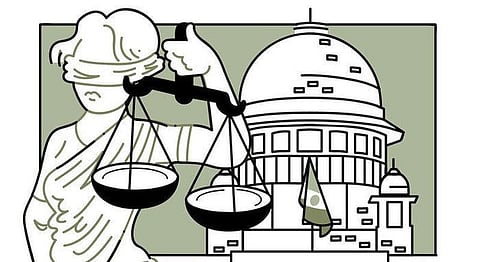
- HOMEGROWN WORLD
- #HGCREATORS
- #HGEXPLORE
- #HGVOICES
- #HGSHOP
- CAREERS
- ABOUT US
- CONTACT US

We live in a complicated country, and with a complicated country, comes complex laws and judiciary systems; central laws, state laws, regional laws—meandering through each and every one of them is pretty much the same as trying to make your way through a Mumbai local train during rush hour.
That’s why Srijoni Sen, a Delhi-based lawyer, decided to make the process a lot easier and comprehensible, one law at a time. She set up her website, Nyaaya which is best defined as the country’s first free online catalogue of every central and state law broken down in simple English and Hindi. The project began with improving accessibility and simplifying every law for all citizens. But in a world where every imaginable piece of information is a simple Google search away, to what extent does Nyaaya help the situation?
The website was developed with the aim of creating an online encyclopaedia of the entire country’s legal structure by using a crowdsourced interface, just like Wikipedia. “Nyaaya will be like a modified Wiki that anyone can contribute to and can help clean up, with the core team ensuring quality control,” said Sen in an interview with Scroll.in.
But where the website really becomes very relevant is its simplified guide for victims of crime. These guidelines emphasise on elaborating important sections of the Criminal Procedure Code in an extremely simple step-by-step process. Essentially, it helps any individual convicted or accused answer any questions they might have such as “What happens after one goes to court?” or “What are your rights during a time of arrest?”. Sen also explains how most of the FAQs on the website were finalised after numerous consultations with criminal lawyers and experts, who themselves get asked these questions quite often.
In a way, this website is anyone’s free personal judicial consultant. The Nyaaya team also discusses their plans to expand the website’s functions to suit user needs better. For example, they hope to take a more in depth look into the state laws which are relatively more harder to find and understand online. But more importantly the website is working towards bridging the language gap between them and the users. Currently only operating in English and Hindi, they aim to soon provide translation options in regional languages for all their content. The implications of such a platform can reap several benefits in actually making the common law system more common and accessible to an exponentially larger audiences and especially in times of hasty and unfair convictions.
Representational feature image via Centre for Social Justice
